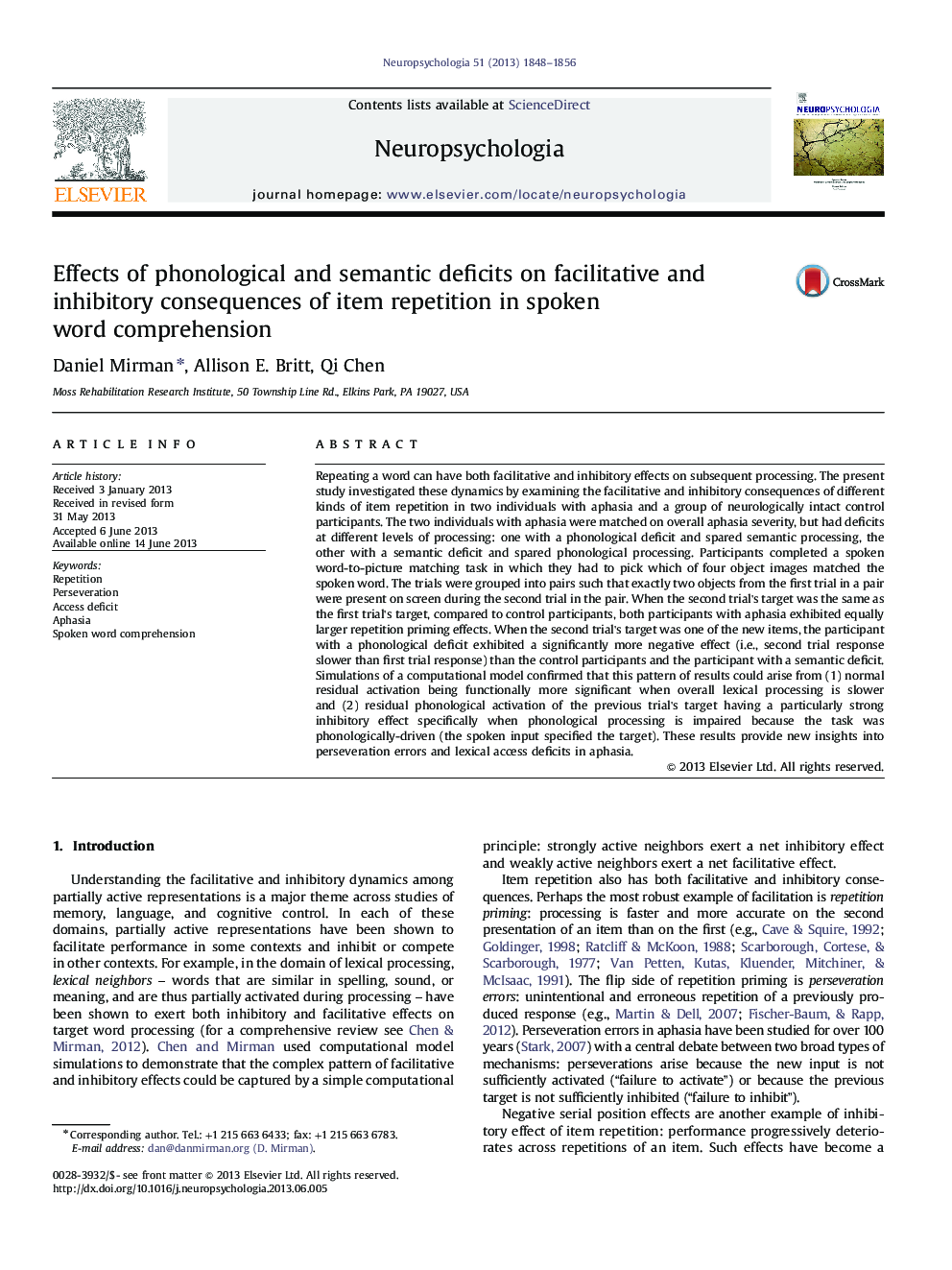| Article ID | Journal | Published Year | Pages | File Type |
|---|---|---|---|---|
| 10464778 | Neuropsychologia | 2013 | 9 Pages |
Abstract
Repeating a word can have both facilitative and inhibitory effects on subsequent processing. The present study investigated these dynamics by examining the facilitative and inhibitory consequences of different kinds of item repetition in two individuals with aphasia and a group of neurologically intact control participants. The two individuals with aphasia were matched on overall aphasia severity, but had deficits at different levels of processing: one with a phonological deficit and spared semantic processing, the other with a semantic deficit and spared phonological processing. Participants completed a spoken word-to-picture matching task in which they had to pick which of four object images matched the spoken word. The trials were grouped into pairs such that exactly two objects from the first trial in a pair were present on screen during the second trial in the pair. When the second trial's target was the same as the first trial's target, compared to control participants, both participants with aphasia exhibited equally larger repetition priming effects. When the second trial's target was one of the new items, the participant with a phonological deficit exhibited a significantly more negative effect (i.e., second trial response slower than first trial response) than the control participants and the participant with a semantic deficit. Simulations of a computational model confirmed that this pattern of results could arise from (1) normal residual activation being functionally more significant when overall lexical processing is slower and (2) residual phonological activation of the previous trial's target having a particularly strong inhibitory effect specifically when phonological processing is impaired because the task was phonologically-driven (the spoken input specified the target). These results provide new insights into perseveration errors and lexical access deficits in aphasia.
Keywords
Related Topics
Life Sciences
Neuroscience
Behavioral Neuroscience
Authors
Daniel Mirman, Allison E. Britt, Qi Chen,
